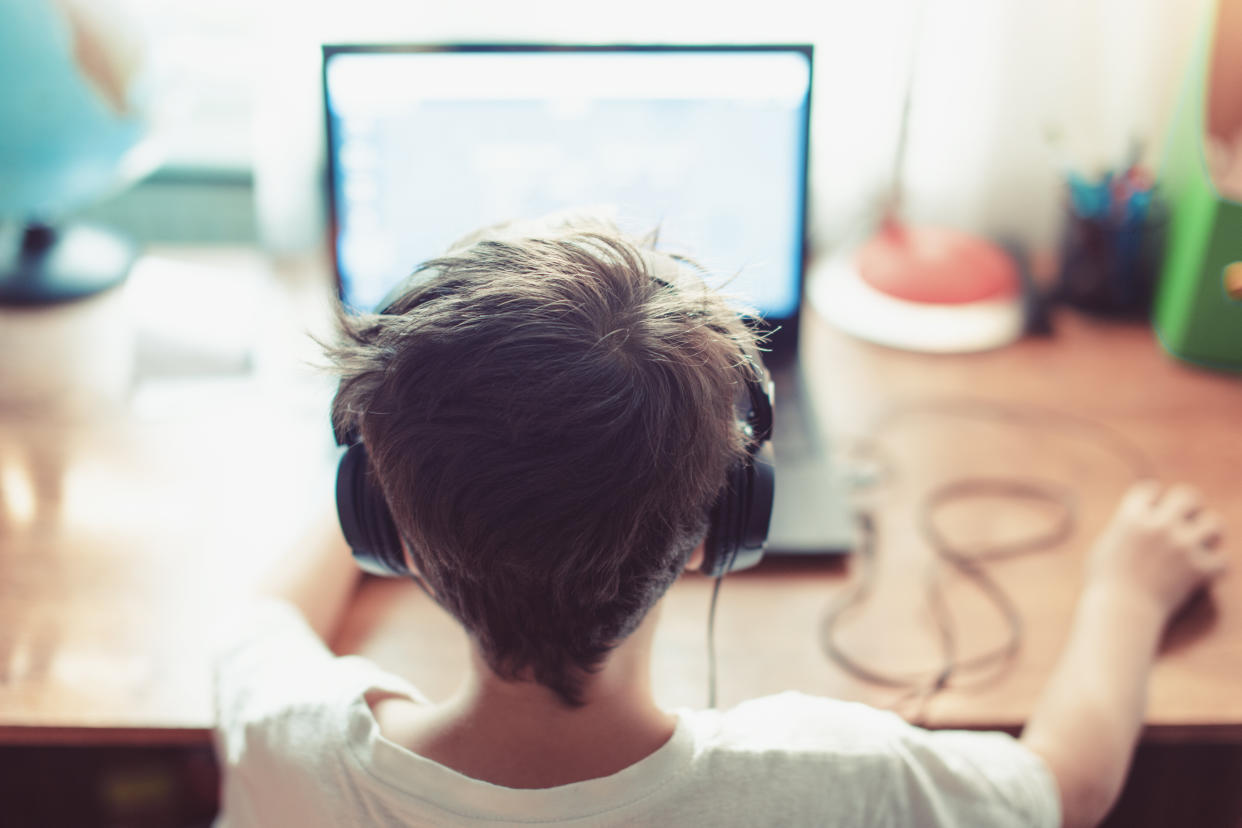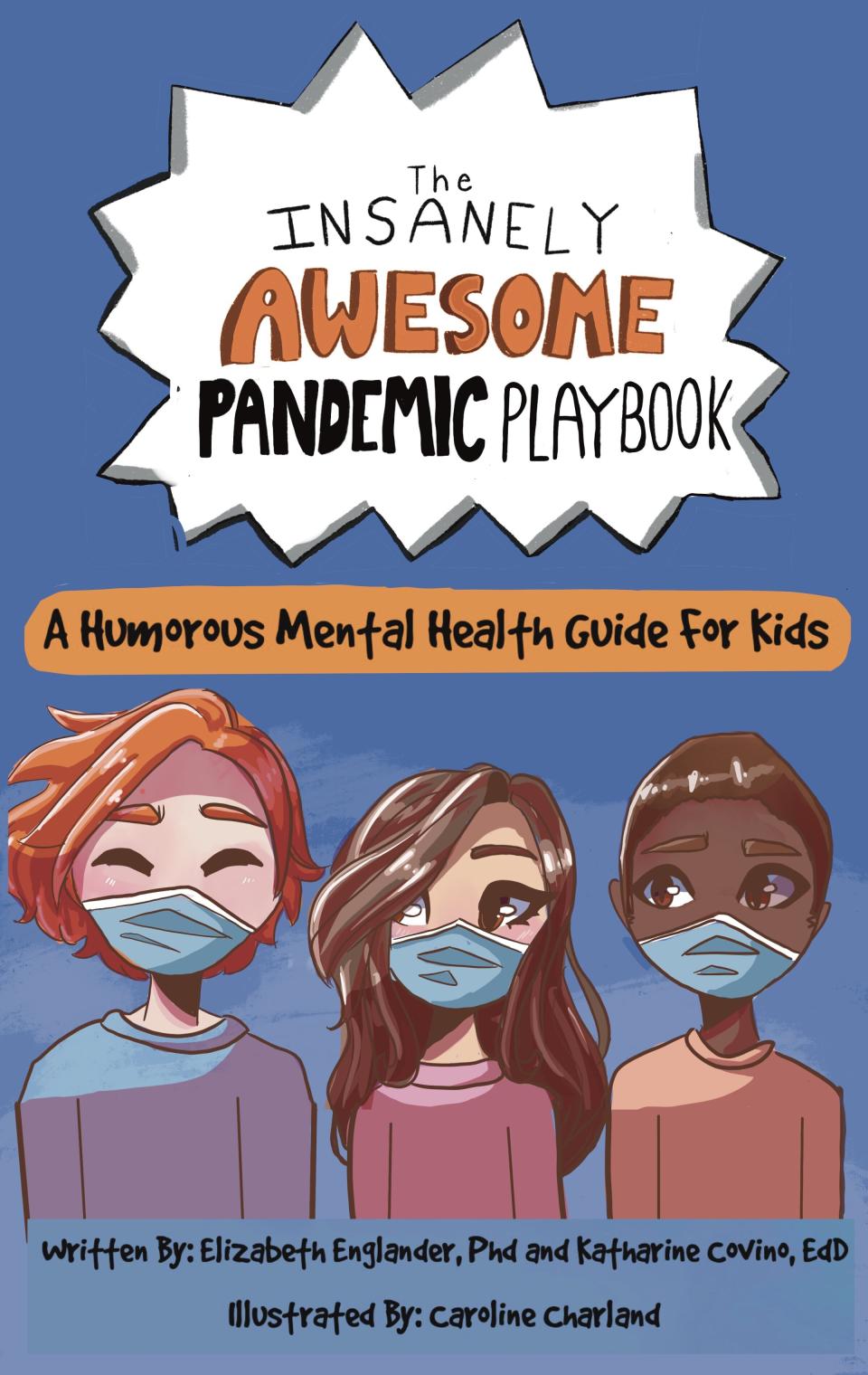A Reminder That Your Tween Really Needs Extra Help Right Now

Since the COVID-19 pandemic began, parents, educators and mental health experts have paid a lot of attention to taking care of their really young kids, simply because babies, toddlers and early elementary school children require a a lot of hands-on care. And they have spent a lot of time thinking about how teenagers are coping.
But tweens (and parents of tweens) have been kind of ... lost.
It makes sense. Kids in the 8(ish) to 12(ish) range are generally old enough that they don’t need someone to sit with them all day long during remote learning, and young enough that they’re not missing out on major rites of passage, like graduation. Their struggles — big and small — may be overlooked.
But preteens and tweens are in a crucial developmental stage. And they may be especially prone to anxiety and depression during the pandemic, said Elizabeth Englander, executive director of the Massachusetts Aggression Reduction Center.
So Englander teamed up with Katharine Covino, assistant professor of English studies at Fitchburg State University in Massachusetts, to write a humorous guide for helping pre-adolescents as they continue to navigate the pandemic: “The Insanely Awesome Pandemic Playbook: A Humorous Mental Health Guide For Kids.” (The book was illustrated by Caroline Charland, a 12-year-old who brought really valuable perspective to the process, Englander said.)
Tweens really need their own tools for continuing to cope with the COVID-19 pandemic because, as Covino put it, “they’re old enough to know that things are different and scary for their families, but not quite old enough to know why.”
HuffPost Parents chatted with Englander about what tweens are going through, and how caregivers can help them navigate the next few months.

The pandemic has been going on a long time now. Where do you think tweens are emotionally now that they’ve had some time to get used to so many changes?
Kids are definitely resilient, but this pandemic has been a huge blow to them. They’ve lost an enormous amount — their schedules, their schools, their activities, seeing friends, seeing extended family ... and some have been really traumatized by financial blows, illness, or even death. I do think many kids have adapted and if they’re lucky enough to be in families that get along with no severe financial stress or illness, I think we’ll see kids bounce back.
But this pandemic has affected everyone psychologically, and children are quite vulnerable in this regard. I think that as the fall and winter — and the pandemic — have dragged on, issues like stress, anxiety and depression become more and more important.
It’s the chronic, ongoing stressors that really increase rates of mental health problems.
Given all of that, humor might seem like an odd approach. Why do you think it’s important?
We wanted to write a book that kids would actually want to read, and that’s what the humor achieves. When we field-tested readings, we found (sure enough) that it was the humor that really engaged kids — and led to them actually remembering the book’s content.
What should parents who really want to give their kids a good start to 2021 be thinking about? They’ve been through so much!
First, I think we should try and be positive ourselves — 2021 is less than two weeks old, let’s give this baby a chance! There are good things to look forward to, most notably, of course, the vaccine.
Second, I think it’s helpful to explain to kids that all our work has already helped more positive events occur. For example, scientists have worked nonstop to develop the vaccine, and my goodness, they did it in record time! Like that, if we all try and do positive things, that will help things get better.
For example, let’s make sure to keep in touch with people we love and care about. That means taking the time to Zoom with grandparents, with friends, with your cousins and everyone else. If we keep talking to these people, then seeing them after the pandemic is over will be easier and more fun.
Your book embraces the idea of rewards. Like, one section asks kids to list three things they can enjoy right after they finish their schoolwork, as well as three longer-term treats to look forward to. Should parents also be thinking about that kind of stuff for their tweens?
Definitely do extra fun stuff now and then. In the book, we talk about sometimes having a “sundae dinner” instead of “Sunday dinner.” Play a new game! Decorate the living room with hundreds of family pictures! Read a good book, aloud, together. Things that make you smile actually help lift your mood, too.
The book also talks about “FOMO,” which I think we sometimes forget can be a very big deal for preteens, too. Do we know, at this point, what impact social isolation during COVID-19 has had on tweens?
There’s actually very little that’s been published. There were a few studies done in China at the outset of the pandemic, and they showed substantial rises in depression and anxiety — almost certainly due, at least in part, to the social isolation. It’s hard to get fast results in the traditional scientific community.
But there has been some research on how kids recover from extended time out of school. A small study was done in Louisiana after repeated hurricanes when kids were out of school for several months. Kids are resilient, but it took them a while to readjust to school and they approached normalization differently. Some kids wanted to talk a lot about the trauma, while others didn’t want to talk about it at all. We’re going to have to prepare parents, school and kids for the readjustment phase.
What should parents be on the lookout for to tell if their tween (or tweens) are struggling?
Once kids reach adolescence, they’re much better at being specific about what’s bothering them. But one of the challenges of parenting young kids is that their “symptoms” are generalized. So changes in sleeping, mood or eating can be due to lots of different causes.
Try doing a “check-in” during dinner where each person reports on their mood. Are they feeling cranky? Restless? Pointlessly mad? Sad? Worried about school? Worried about the virus?
If so, have a conversation with them alone, maybe at bedtime, and ask them what they’re thinking about. A psychologist named Ashleigh Warner once said, “Beneath every feeling is a need.” If you notice that your child is feeling worried — which is very common — help them feel better in the short term by giving them some facts. Like: “Most people who catch this virus don’t get very sick.” And spend some fun time with them.
Help them in the long term by emphasizing how much we are all working towards getting back to “normal.”
The key point? All the effort we put in now isn’t wasted. It’s all going towards helping us restart and transition to a much better 2021. Keep telling your kids this!
Conversation has been edited and condensed.
Related...
Kids Handled 2020 Like Champs. Let's Make It Up To Them.
What Child Therapists Are Telling Their Kids To Expect In 2021
Is It Safe To Be Around Someone Who Got The COVID-19 Vaccine If You Haven't?
This article originally appeared on HuffPost and has been updated.



